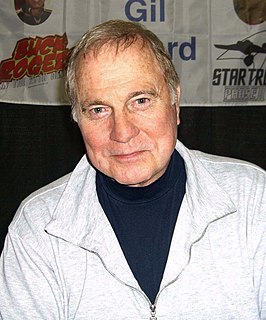A Quote by Donna J. Haraway
The boundary between science fiction and social reality is an optical illusion
Related Quotes
Literary science fiction is a very, very narrow band of the publishing business. I love science fiction in more of a pop-culture sense. And by the way, the line between science fiction and reality has blurred a lot in my life doing deep ocean expeditions and working on actual space projects and so on. So I tend to be more fascinated by the reality of the science-fiction world in which we live.
There are sacred moments in life when we experience in rational and very direct ways that separation, the boundary between ourselves and other people and between ourselves and Nature, is illusion. Oneness is reality. We can experience that stasis is illusory and that reality is continual flux and change on very subtle and also on gross levels of perception . . . When people bother you in any way, it is because their souls are trying to get your divine attention and your blessing.
There's no real objection to escapism, in the right places... We all want to escape occasionally. But science fiction is often very far from escapism, in fact you might say that science fiction is escape into reality... It's a fiction which does concern itself with real issues: the origin of man; our future. In fact I can't think of any form of literature which is more concerned with real issues, reality.


































